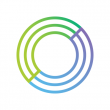Sweden starts piloting e-krona on R3’s Corda platform
Riksbank, Sweden’s central bank, has begun testing what could become the world’s first central bank digital currency (CBDC). With the help of Accenture, the bank is edging to first place in the race to be the first central bank to get its digital currency over the finish line.
The People’s Bank of China (PBC) has also been piloting its digital yuan since last November, and the Bahamas has begun testing its new digital Sand Dollar in Exuma. Other countries assessing the idea of CBDCs include Japan, the UK and Canada as well as the entire continent of Europe.

Sweden’s CBDC is using R3’s Corda Enterprise Blockchain platform
US ‘Crypto Dad’ Christopher Giancarlo is trying to promote a blockchain-based US dollar, also with Accenture’s help, but no central US authorities are onboard yet.
The e-krona has been designed to help boost payments, deposits and withdrawals from a digital wallet. “The aim of the project is to show how an e-krona could be used by the general public,” the Riksbank said in a statement.
Read more: St Helena introduces electronic payments to the island with iPayu
Based on distributed ledger technology (DLT) using R3’s Corda Enterprise Blockchain platform, Sweden’s CBDC will be controlled by Riksbank, the only body able to add new participants to the network.
“Corda’s solution for verifying transactions is not as energy-consuming as Bitcoin,” Riksbank says in a brochure explaining the technology. “Corda also provides a high degree of robustness and scalability as only a few nodes […] are involved in each transaction”.
Unlike decentralized cryptocurrencies such as Bitcoin, which are controlled by various private bodies and often receive criticism for being susceptible to money laundering, Riksbank’s e-krona is designed to be regulated by just one, state body.
With only 1% of Swedish GDP existing in banknotes in 2018 according to the country’s central bank, it is a suitable starting point for the world’s first CBDC.
Read next: Tally launches 2.0 version of UK Faster Payments-linked app











































